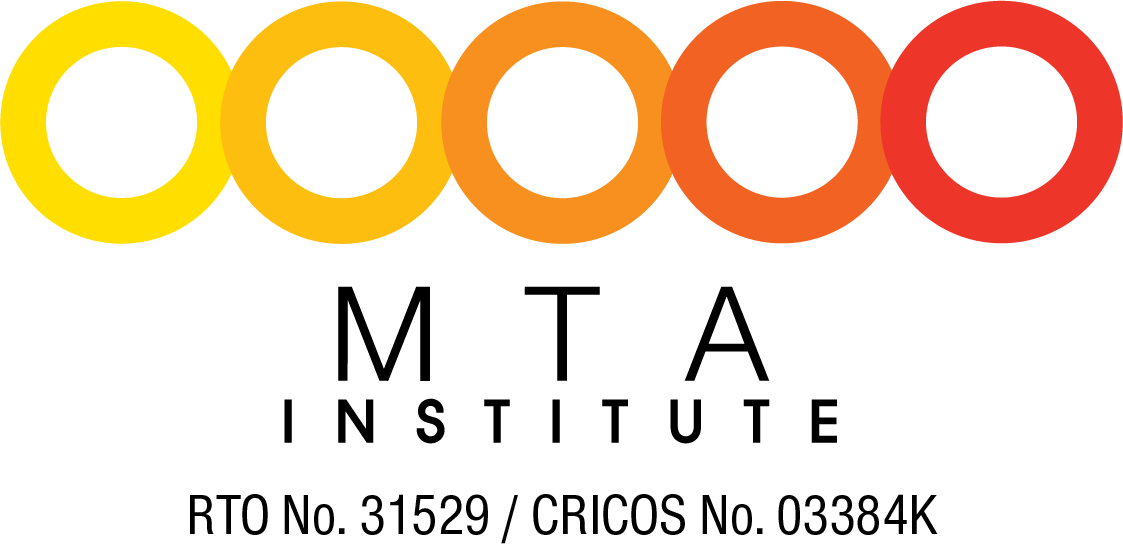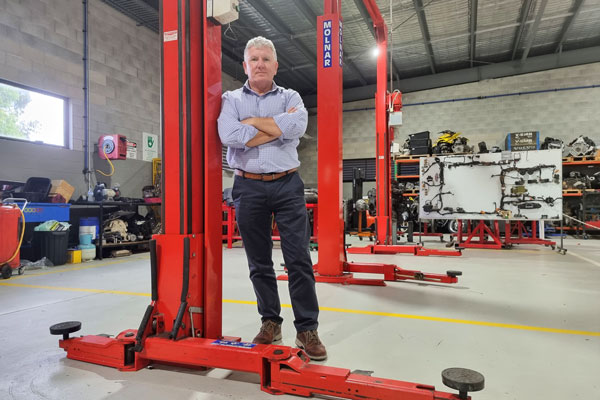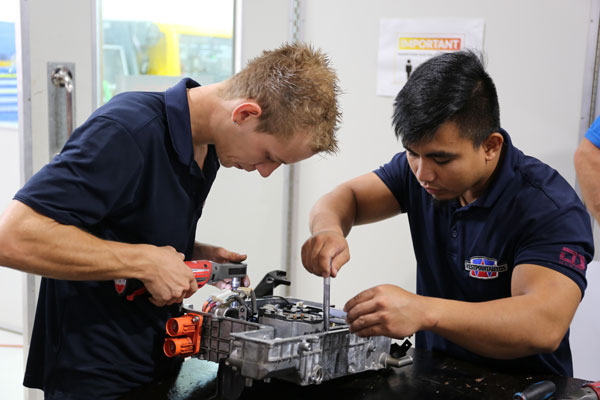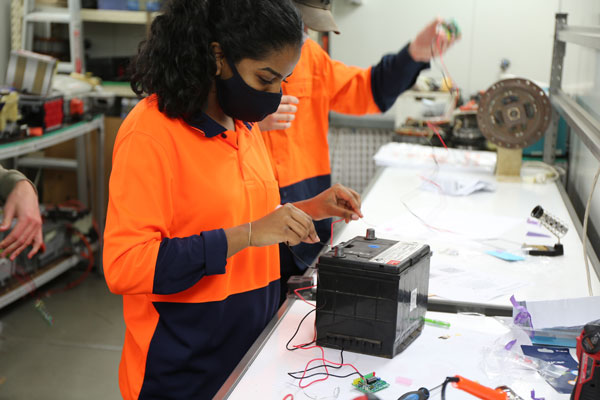MTA Institute Launches International Training Service
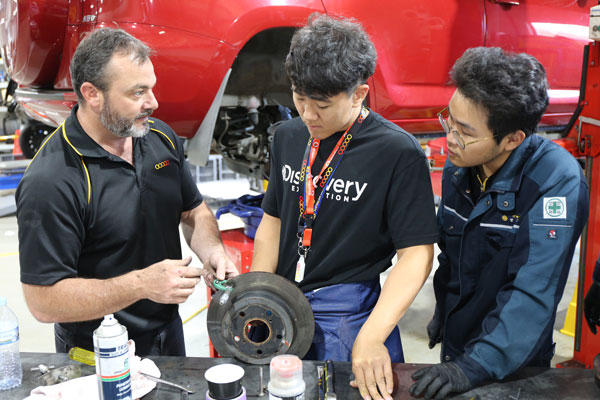
Experienced trainer and Senior Business Development Manager Anthony Bonaccorso has been instrumental in developing the International Training Program.
The automotive industry across Australia is facing a skills and labour shortage. Anyone currently running an automotive business, in just about any sector, who has tried to recruit and retain skilled employees is almost certain to know this. And their experience is reflected in the reports and surveys completed by various national automotive groups and organisations.
For example, in Capricorn’s 2021 State of the Nation report – a survey of more than 2000 of that organisation’s members – ‘lack of qualified staff’ was listed as the top challenge for the industry overall, and 53 per cent of respondents said they were ‘very or extremely concerned’ about the skills shortage.
According to the Motor Trades Association of Australia’s (MTAA) Directions in Australia’s Automotive Industry report 2021, the percentage of automotive businesses in Queensland experiencing a skill shortage runs at 56.8 per cent. It adds that there is ‘an estimated deficit of 31,143 skilled positions within the automotive industry nationally. This represents the highest level of skill shortages ever recorded for the industry.’ Of those 31,143 skilled positions, demand is highest for light vehicle mechanics (17,509 positions) and heavy vehicle mechanics (2,711 positions).
The MTAA’s report goes even further, saying that ‘key observation from the data is that it is not just the supply of skilled labour that is in deficit, but also the quality of the skills base which has atrophied according to many employers. For example, even amongst applicants that present as qualified technicians, employers are witnessing a poor level of diagnostic technical and fault-finding capability, electrical knowledge, as well as practical experience across different vehicle marques.’
What can be done about this shortage of skilled workers? Employers should be applauded for the significant increase in employing apprentices. Inspiring more young people to consider the automotive trades as career options is clearly one solution. Encouraging women – who comprise around 50 per cent of Australia’s population but who make up a tiny percentage of hands-on, in-the-workshop, tradespeople – into the trades is another. A third would be to take advantage of the interest from overseas students who are keen to be trained to Australian industry standards.
With almost all COVID-19 restrictions now lifted and international travel unrestrained for those who are fully vaccinated, the opportunity is now open for students to come to Australia. With the skills shortages front of mind, MTA Institute is offering students that chance through the creation of a new international training program.
The division will be led by Matt Traynor, a 30-year veteran of the employment and training sector who has held senior positions at educational and training organisations including TAFE, the Australian Industry Group, and ITECA (Independent Tertiary Education Council Australia) when it was known under its former name of ACPET (Australian Council for Private Education and Training).
“The automotive sector has massive skills and labour shortages, and whatever we do – whether it’s skilled migration or developing international students or delivering micro-credentials – it all leads towards addressing that problem. Because that is the burning issue.”
The international student program is, said Matt, a longer-term solution, and two nationally accredited and CRICOS registered courses will be offered initially – 103636G | AUR30620 Certificate III in Light Vehicle Mechanical Technology and 091674D | AUR40216 Certificate IV in Automotive Mechanical Diagnosis.
International students will travel to Australia to study at the MTA Institute’s workshop facility in Brisbane, and training for the dual qualification will take place over two years and will include more than 400 hours of hands-on learning through work experience placement with an industry employer (or employers).
This period of theoretical learning, work experience, and institution-based training is designed to give the students the tools to step into a workshop environment as full and productive employees and, with additional guidance and instruction from their employer, enable them to develop further to the point that they can receive recognition of prior learning and receive their full tradesperson ticket.
With work placement a critical part of the program, the students’ week is designed specifically to give them real-world experience – a boon to workshops looking for enthusiastic and ambitious staff.
“The structure of the student week is that for three days they will be training here at the MTA Institute. They will also have one day work placement, and one free day,” said Matt. “They can do as they wish on the free day though we would like to think that the business at which they are doing their work placement could take them on for that day or even more.”
Careful monitoring of a student’s progress will be done to ensure that they are working to their abilities and knowledge, learning as they go and being productive to the business at which they are doing their work placement.
“As the students move through the modules and their time with us here, we’ll be talking to employers to let them know they are at a particular part of their training and should be competent and be able to do certain types of work safely and productively,” said Matt. “Part of our oversight is to make sure we match students and workplaces together well, and ensure employers are realistic about their expectations of the students capabilities and how it relates to their training.
“The weeks of training they must do and the amount of placement hours incorporated into the program means the students will, with the support of an employer and with outcomes successfully achieved along the way, have a variety of pathways open to them. If they remain working in the industry for maybe 2-3 years more, and have employer endorsement, they can then move on to trade recognition and become a mechanical tradesperson.”
And here lies the ultimate goal for the International Training Services team and for the MTA Institute – to deliver world-class training and develop the talent to meet the skills and labour needs of MTA Queensland members and the wider industry.
“The quality of our work-integrated learning approach is an absolute priority,” said Matt. “These are the members we’re representing and looking after, so we’ve got to get it right. And it’s got to leap beyond just the training. It’s got to be an employment solution.”
The program will initially be aimed at students from the ASEAN, Indian, Nepalese and Korean markets and in July, the first group will make their way to Brisbane to begin their training journey.
Thanks to a network of specialist agents working on MTA Queensland’s behalf, students targeted will be those who truly desire to become automotive tradespeople.
Support for them will be extensive. While a good understanding of English is a prerequisite for accessing the program, language training will be provided. Pre-arrival information will include clear advice for students on how to prepare for their studies abroad, and a handbook will cover all the information regarding student attendance, monitoring and progression, and other related policies. Advice on banking, healthcare, accommodation, and all those other living necessities will be available, and the MTA Institute will hold many social and networking events to help students integrate into the Australian way of life and be introduced to employers and relevant organisations.
“We are committed to providing student pastoral care whatever it may be,” said Matt.
This support structure is not just for students. Critical to the program’s success are employers, and the MTA Institute will make it simple for businesses to be part of it. The Association will offer student profiles that outline the skills they have acquired, connect employers with students for vocational placements, conduct webinars for members to gain an understanding of work visas, and will always be contactable and ready to provide ongoing advice to members who have elected to be part of the program.
While the first intake of overseas students is scheduled to arrive and begin training in July, additional intakes will coincide with the four school terms scheduled each year (those terms begin in January, April, July, and October).
“Whatever we do has to start with acknowledging the skills and labour void,” said Matt. “For smash repair, spray painters and those sorts of areas, this model could also apply. And we should be excited about exploring electric vehicles and bikes, and how we can position ourselves internationally for that.”
The International Training Program marks another step taken by MTA Queensland, and the MTA Institute, to provide its members, and the wider industry, with progressive, innovative training, upskilling, and employment options for their staff and their businesses. The range of apprenticeship, pre-apprenticeship, traineeship, licensing, and industry training courses is comprehensive, and the past two years has seen the introduction of a suite of micro-credential courses; short courses on Advanced Driver Assistance Systems (in partnerships with ADAS Solutions Australia) and Diesel Diagnostics (in partnership with Diesel Help Australia); as well as the Auto Ready course designed to provide school-age students with a basic introduction to the automotive industry. Soon, the MTA Institute will look to offer the new AUR32721 Certificate III in Automotive Electric Vehicle Technology.
“We are committed to meeting the skills demands of our members,” said Rod Camm, MTA Queensland Group CEO. “It is fantastic how they have committed to a substantial increase in apprenticeship intakes, however, that process takes time. We are also aware that in addition to technicians there is a real demand for aftermarket fitters and the like. We have commenced our international training program as a part of that strategy. Again, this will take time, but we need to build the skills needed for the future.”
Click HERE To find out more about MTA Queensland’s International Training program.
Source: Motor Trader e-Magazine (April 2022)
21 April 2022
